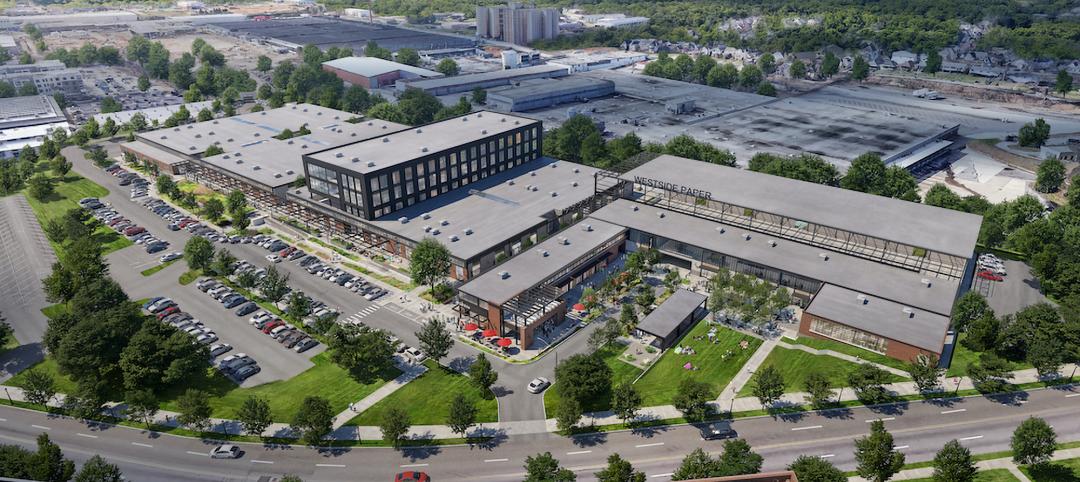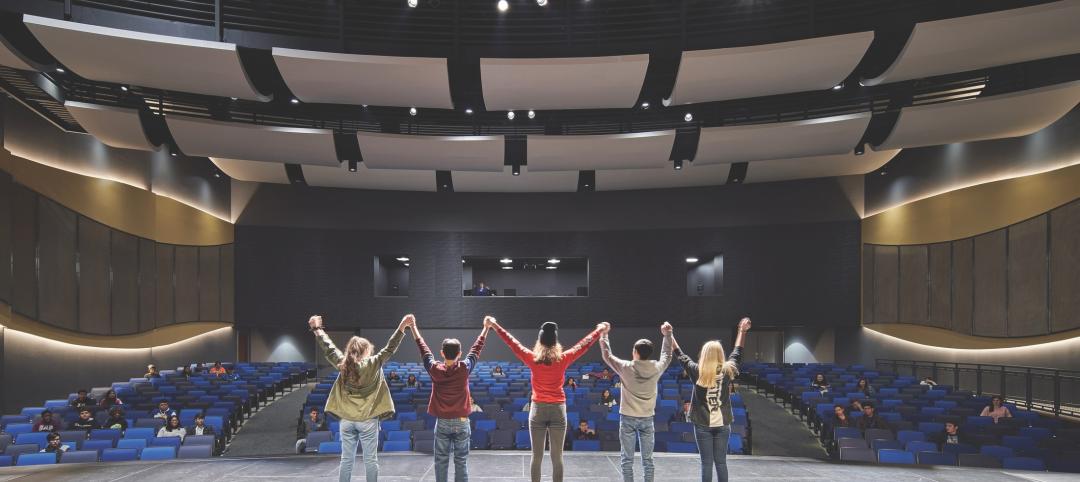In recognition of the importance of sustainable parking facilities and practices to the development of sustainable communities, the Green Building Certification Institute (GBCI), the certification body for the U.S. Green Building Council’s global LEED green building rating system, today signed a memorandum of understanding (MOU) with the International Parking Institute (IPI), the world’s largest parking association, and the Green Parking Council (GPC).
“Sustainability in parking is integral to building a greener future, not only structurally, but also by shaping transportation networks that support more livable, walkable communities,” said Mahesh Ramanujam, president, GBCI. “This agreement will also expand the GBCI’s portfolio and mission to recognize excellence in green performance and practice.”
The three organizations will work in a strategic partnership for the delivery and promotion of the GPC’s recently launched Green Garage Certification program, which applies to both new and existing parking structures.
Green Garage Certification was developed by experts from a range of related fields, including parking, architecture, engineering, technology, property management, and academia. It assesses 50 elements of parking facility sustainability, including management practices that maximize performance while minimizing waste; programs encouraging alternate modes of transportation and community engagement; and efficient and sustainable technology and structure design.
“This is a game-changer,” explained John Schmid, chairman of GP, an affiliate of IPI. “Collaborating with the GBCI will result in a multiplier effect, dramatically increasing awareness of sustainable parking design, operations, and management. This is an epic moment for parking and a giant leap forward toward a more environmentally and economically sustainable garage of the future”
“With GPC’s Green Garage Certification standards, IPI’s established focus on education related to sustainability, and GBCI’s distribution channels all working in sync, we’re enthusiastic that we can mainstream sustainable parking,” said Shawn Conrad, CAE, IPI’s executive director. “We are confident that will have a positive, far-reaching effect on the environment.”
Related Stories
Office Buildings | Jan 19, 2024
How to strengthen office design as employees return to work
Adam James, AIA, Senior Architect, Design Collaborative, shares office design tips for the increasingly dynamic workplace.
Modular Building | Jan 19, 2024
Building with shipping containers not as eco-friendly as it seems
With millions of shipping containers lying empty at ports around the world, it may seem like repurposing them to construct buildings would be a clear environmental winner. The reality of building with shipping containers is complicated, though, and in many cases isn’t a net-positive for the environment, critics charge, according to a report by NPR's Chloe Veltman.
Adaptive Reuse | Jan 18, 2024
Coca-Cola packaging warehouse transformed into mixed-use complex
The 250,000-sf structure is located along a now defunct railroad line that forms the footprint for the city’s multi-phase Beltline pedestrian/bike path that will eventually loop around the city.
Sponsored | BD+C University Course | Jan 17, 2024
Waterproofing deep foundations for new construction
This continuing education course, by Walter P Moore's Amos Chan, P.E., BECxP, CxA+BE, covers design considerations for below-grade waterproofing for new construction, the types of below-grade systems available, and specific concerns associated with waterproofing deep foundations.
Sponsored | Performing Arts Centers | Jan 17, 2024
Performance-based facilities for performing arts boost the bottom line
A look at design trends for “budget-wise” performing arts facilities reveals ways in which well-planned and well-built facilities help performers and audiences get the most out of the arts. This continuing education course is worth 1.0 AIA learning unit.
Giants 400 | Jan 15, 2024
Top 130 Hospital Facility Architecture Firms for 2023
HKS, HDR, Stantec, CannonDesign, and Page Southerland Page top BD+C's ranking of the nation's largest hospital facility architecture and architecture engineering (AE) firms for 2023, as reported in the 2023 Giants 400 Report.
Airports | Jan 15, 2024
How to keep airports functional during construction
Gensler's aviation experts share new ideas about how to make the airport construction process better moving forward.
Adaptive Reuse | Jan 12, 2024
Office-to-residential conversions put pressure on curbside management and parking
With many office and commercial buildings being converted to residential use, two important issues—curbside management and parking—are sometimes not given their due attention. Cities need to assess how vehicle storage, bike and bus lanes, and drop-off zones in front of buildings may need to change because of office-to-residential conversions.
MFPRO+ News | Jan 12, 2024
As demand rises for EV chargers at multifamily housing properties, options and incentives multiply
As electric vehicle sales continue to increase, more renters are looking for apartments that offer charging options.
Student Housing | Jan 12, 2024
UC Berkeley uses shipping containers to block protestors of student housing project
The University of California at Berkeley took the drastic step of erecting a wall of shipping containers to keep protestors out of a site of a planned student housing complex. The $312 million project would provide badly needed housing at the site of People’s Park.















